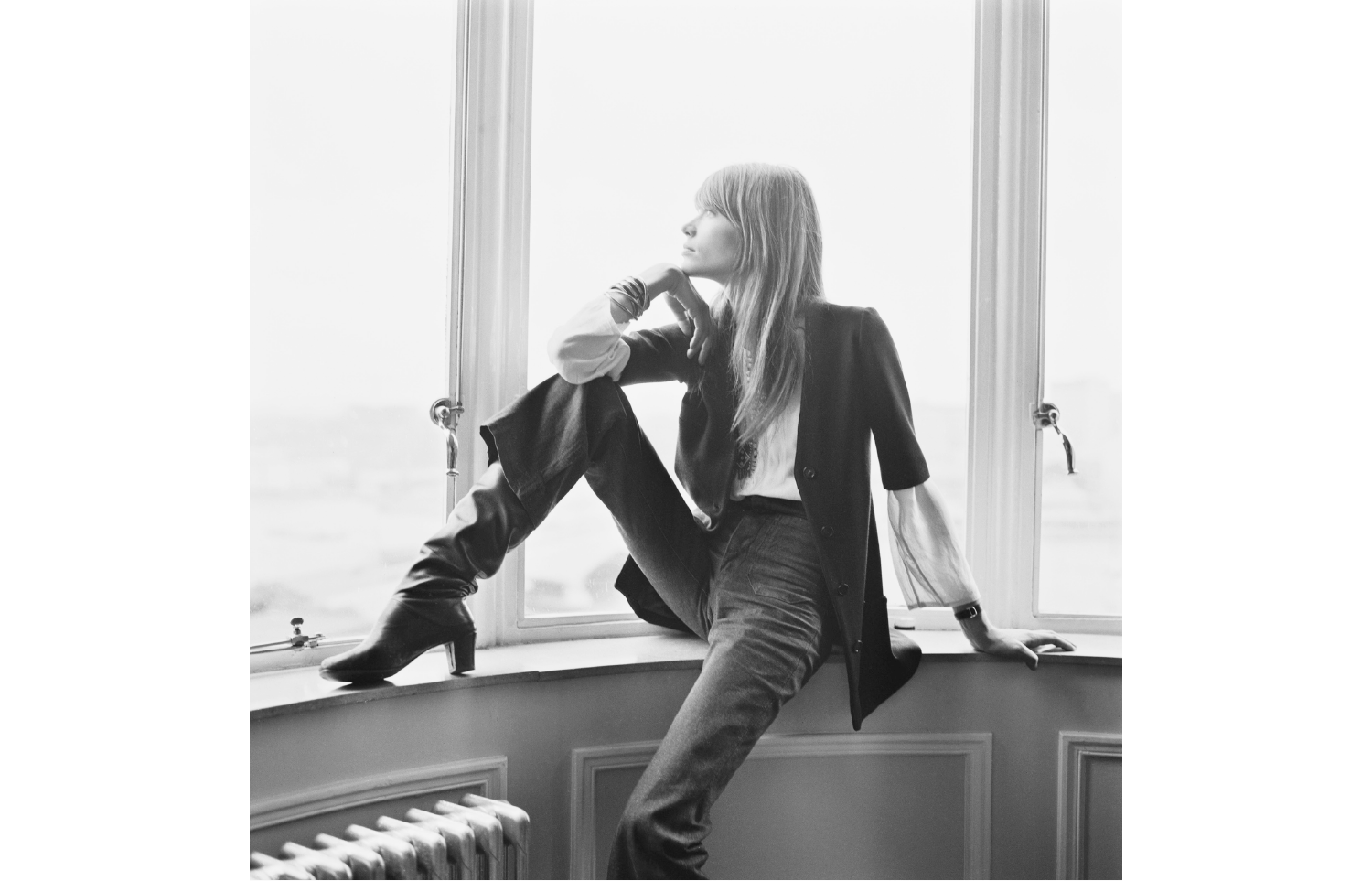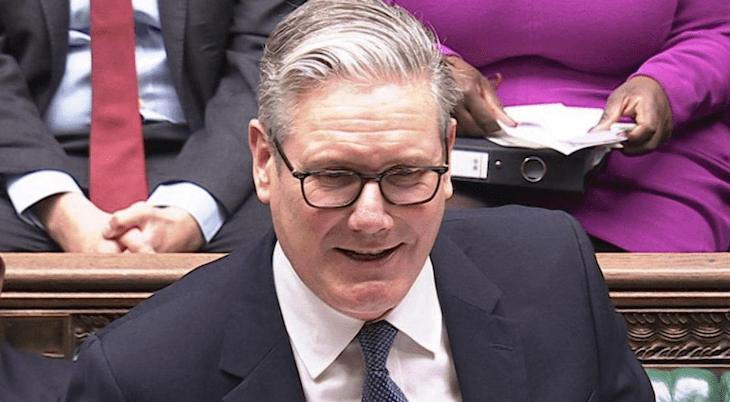The other day, I went to see a nouveau riot-girl band called Claire Dance play in a disused factory in Bagnolet on the edge of Paris. They were great: the kind of sonic kick in the nuts I’d been waiting more than a decade for an all-female band to deliver. I half-wondered whether it was just my own imperfect command of French that left me clueless as to their message. ‘C’était tout een eenglish,’ came the response from the guitarist afterwards. How come they never considered accompanying such emotionally charged music with lyrics in their mother tongue? ‘It’s considered cringe,’ she replied. ‘We only like English music.’
The alternative scene leans ever further towards English – French is considered ‘cringe’
That France has a complex about its language will surprise nobody. Where the frontiers of other tongues are porous, the Académie Française polices its own with all the open-mindedness of a North Korean political commissar. Gallicisation of English neologisms has been recommended policy since 1972, and effectively enshrined in law since the 1990s. There is, however, one gaping cultural anomaly in this schema, an exception that proves but increasingly undermines the rule: the strange disappearance of French from the country’s homegrown rock and pop.
Since the Toubon Law of 1994, 35 per cent of radio airplay has been reserved for French-language songs. France, moreover, is the only country which insists that its Eurovision entries be sung (at least partially) in its own tongue – when beardy hipster Sébastien Tellier dared to perform in English in 2008, the reaction was, to say the least, mixed. Yet the ‘alternative’ scene leans ever further towards English, and the reasons come down to that most idiotic rationale: ‘accessibility’.
During the Trente Glorieuses after the second world war, when a relatively monoglot but economically powerful middle-class emerged in France, the local idiom ruled the airwaves. A distinctive style of classic French pop emerged, advanced by the likes of Jacques Dutronc, Serge Gainsbourg, Michel Polnareff and the late, imperishably great Françoise Hardy. The songs were good, and the production, in contrast to Anglophone norms, prioritised voice over music.
Even as recently as the 1980s, when a brief, brilliant flowering of local talent – notably Étienne Daho, Mylène Farmer, Alain Bashung and the excellent boy-girl combo Les Rita Mitsouko – created some of the best records of the decade, it still held strong. Many of these acts at some point tried their hand at English; none bar Hardy managed to pull off anything remotely convincing. Wisely, they stuck with what they knew.
But linguistic oblivion lay just around the corner. The forms it took were two different strains of electronic music. One, most famously peddled by a pair of Versailles nerds calling themselves Air, was a spacey, faintly saccharine kind of easy listening that became a go-to for phone commercials the world over. The other was ‘French touch’, a supercharged blend of acid house and sanitised techno offered by the likes of Justice and Daft Punk. The first of these types of music became synonymous with a certain idea of good taste; the second transformed global pop as we know it. They may well have represented France’s greatest cultural export at the time, but their lyrics were almost exclusively in English.
In 2003, the singer of the most revered Francophone rock band of the era, Noir Désir, killed his girlfriend in a Vilnius hotel room. Related or not, the French language subsequently disappeared from all but the most disposable of manufactured pop songs, which cleaved to French lyrics partly to exploit those scary airplay quotas. Hip hop from Marseille and the eastern Paris banlieues, a source of moral panic for conservative France, was the only other genre in which its treasured language remained current. That it was heavy on iconoclastic street slang, gleeful in its abuse of Americanisms and extremely popular must have wound the Académie up no end.
As for Francophone rock, ‘it was a dark age’, says the singer Paul Loiseau. This may explain why he is among a small number of musicians fighting back against the dominance of English. Loiseau is that rarest of things, a contemporary crooner who never in the slightest comes across as retrograde: imagine a curly-haired, Gallic Jarvis Cocker with better dance moves and tighter trousers. He also understands that if you want to sing what you mean, you should probably stick to your own (in his case) inherently lyrical language.
Loiseau is a founder member of a venue called Tony Collectif. In Anglo terms, it is a less precious equivalent to Hackney’s Cafe Oto, and a place where a death-metal gig can be seamlessly followed by an acid-house night. There is nowhere else like it in Paris – not least because it gives pride of place to French-language musicians. One of these is my wife, Orphée, a classically trained singer peddling a wild blend of wonky pop that is one part Nico’s Marble Index to three parts ‘Lucky Star’-era Madonna.
The small number of musicians in Paris reclaiming their language form a large percentage of its most interesting performers. The improbably danceable indie combo Pleasure Principle are a gripping live act, complete with basslines that meet the twain between early Led Zepplin and classic Chic. Then there is the faintly terrifying DIY electronica of Gino Rotten, which somehow manages to sound both utterly beguiling and much as you might imagine Cherie Blair’s inner monologue would if she were a goth with an unhealthy passion for analogue synths. Most famously, there is the effortfully eccentric rock group La Femme, the only band of the bunch to have made an impression outside the Francophone world. They are intermittently brilliant, but weirdly determined not to let their listeners forget quite how much time they spend on holiday in Los Angeles.
One difference performing in French makes, Orphée says, is that the language lends itself to lyrical choruses and spoken verses, themselves rendered musical by the impossibly complex rhyme schemes drummed into every Republican schoolchild’s head. Loiseau agrees, likening the approach of certain Anglo-imitators – many of whom signal their Anglophone influences via sartorial cosplay – to the affectations of a literary hipster who insists on communicating exclusively via vintage typewriter.
The small group of musicians flying a homemade tricolor for their language are nevertheless fighting an uphill battle. If they release records, they do it themselves, because nobody else will be interested. Meanwhile, those who swear that English guarantees them ‘a more international audience’ will get a higher number of bookings but probably won’t ever approximate to anything Anglophones actually want from music. But we’re irrelevant in this equation. Dreadful English is the global idiom, and it’s no longer ours to correct.
It would be easy to gloat, but I have a suspicion that any succour we might take from the misfortunes of our neighbours could ultimately come back to bite us. British pop isn’t going to lose its native language any time soon, but homogeneity takes many forms. And insofar as I’m qualified to judge our own musical culture, its effects have long since calcified.








Comments